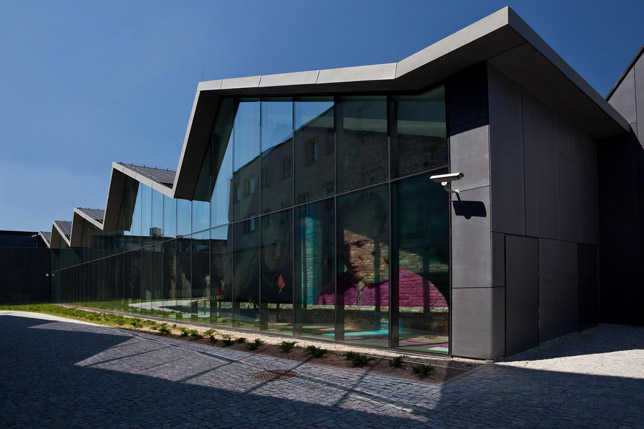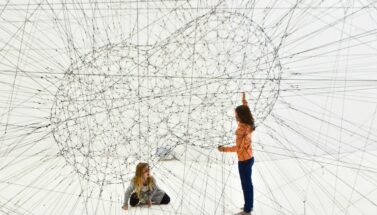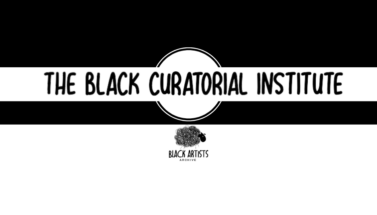Online course – Public/Private: Museums and Rival Institutions in the Contemporary Art World

Online course
The cartclab online program was established in Budapest, 2012. The lab aims to provide as much information and experience about contemporary art as possible both for people (who are) employed within this field and for those (who are) interested in it. Due to an online learning software programme we are able to offer an interactive course available from all over the world. Our lecturers are highly qualified and professionally acclaimed art historians, curators, and art managers. Furthermore, the course can help you to practice and explore the fields of critical communication and reflection.
The next course: Public/Private: Museums and Rival Institutions in the Contemporary Art World
Lecturer: Gábor Ébli, PhD, associate professor
Dates: 10th September-24th September 2013
The course offers 3 video conferences every Tuesday, 5 pm CET
Application deadline: 2nd September 2013
Course fee: 85 €
Programme:
week1:Historical and Theoretical Background of the Public / Private Controversy
Museums both benefit and suffer from the tension and co-operation between the public and private spheres of culture. Often established or enriched by private donations, they are dominantly public institutions, financed by taxpayer money and directed by state administration. While large national museums tend to conform closer to governmental guidelines, flexible museums of contemporary art increasingly integrate private initiatives in funding and in curatorial content alike. From private foundations to corporate art awards, a growing spectrum of competitive institutions of contemporary art also forces museums to adopt new collection strategies and exhibition schemes. This first lecture, in a line of three, will look at earlier models of the public / private relationship in modern museum history as well as at the structural, theoretical foundations of why and how public / private museums engage in contemporary art.
week 2: Museums and Cultural Policy: Case Studies from Eastern Europe
Lecture II of the series concentrates on public museums of contemporary art from two points of view. First, their ties to the central and local governments are examined. Why do governments finance the representation of the art of the present in institutions that are supposed to be the custodians of the past? And once they do so, what specific canonisation guidelines do these state bureaucracies try to force upon museums? Second, in selecting the examples and case studies to illustrate these issues, this lecture will have a geographic focus – on Central and Eastern Europe. Since the fall of the Berlin Wall (1989), the notions of contemporary art and of public museums have been severally re-defined in this region. The as many as twenty independent states, plus a giant on its own, Russia, in this vast terrain from the Baltic Sea to the Balkans, boast today some quite progressive museums (for instance in Poland, Slovenia and Croatia), along with numerous examples where national governments restrict the professional autonomy of museums and other institutions of contemporary art.
week 3: Private Collecting and Corporate Patronage: Comparative Overview from Eastern Europe
The current economic crisis highlights the importance of private institutions of contemporary art by proving that in times of scarce public budgets – and often of conservative governmental cultural policies – private initiatives may provide a financially and politically welcome alternative to monolithic state museums. This lecture will present the leading private collections of contemporary art in Central and Eastern Europe and the private museums, with their often spectacular architecture, that have been born of these collections, from Prague to St. Petersburg. Next to individuals, the “private” label also covers companies, whose awards and prizes, such as the Strabag Prize, the Young Visual Artists Awards and the projects funded by the Vienna-based Transit Network, are instrumental for the development of contemporary art in the region.
Application form avaible from cARTclab page.
Gábor Ébli:
Gábor Ébli, born 1970 in Budapest, earned a PhD in Aesthetics from Eotvos University, Hungary and one in History from the University of Sydney, Australia. A former Fulbright grantee to New York and a Research Fellow at the Institute for Art History at the Hungarian Academy of Sciences from 2002 to 2005, he now teaches at the Institute for Theoretical Studies at Moholy-Nagy University of Art and Design Budapest (MOME). As Head of the MA programme in Art and Design Management, he focuses his research and teaching on international issues of museums and private collecting. Jury member of the Austrian based Essl Art Award Central and Eastern Europe, which promotes emerging artists from Prague to Istanbul, he specialises on institutions of contemporary art in this region.
For more information: www.cartc.hu or kigyosfruzsi@cartc.hu





